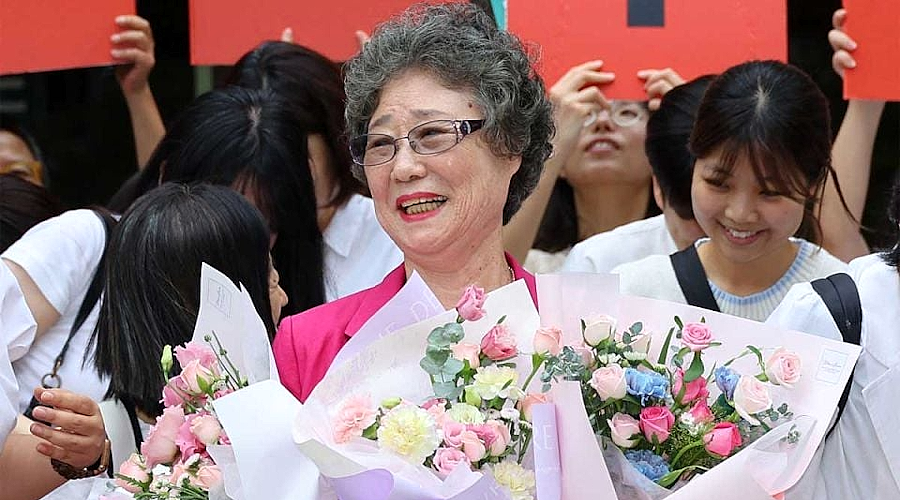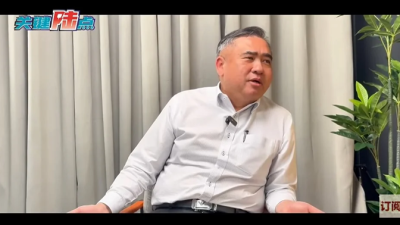
SEOUL: After more than six decades, a South Korean woman who spent her lifetime branded as an offender for resisting sexual assault has been declared innocent.
On Wednesday, the Busan District Court acquitted 78-year-old Choi Mal-ja, overturning a 1964 conviction that punished then 18-year-old for biting off part of her attacker’s tongue while fighting off rape.
The ruling concludes a 61-year legal battle, reshaping definitions around gender and self-defense.
Presiding Judge Kim Hyun-soon declared Choi not guilty of the charge of causing grievous bodily harm, a conviction that had haunted her life since she was a teenager.
The case began in May 1964, when Choi resisted a 21-year-old man who knocked her to the ground and forced his mouth on hers just outside of her home.
As he attempted to force a kiss, she bit down on his tongue, severing about 1.5 centimeters.
Instead of being recognized as acting in self-defense, Choi was indicted and sentenced to 10 months in prison, suspended for two years.
Her assailant, meanwhile, received a lighter sentence for trespassing and intimidation, with attempted rape excluded from his charges.
That ruling reflected not only the judiciary’s blindness to sexual violence at the time, but also a culture that treated women’s bodies as objects of morality rather than something they had autonomy over.
“Even though it was clearly self-defense, she was treated as the perpetrator,” said Choi Ran, deputy director of the Korea Sexual Violence Relief Center.
“Investigators went so far as to suggest she should marry her attacker, as he will have limitations in social activities.”
For much of the 20th century, Korean law framed sexual crimes as “offenses against chastity,” or “jeongjo.”
The term, drawn from Confucian ideals, defined a woman’s value by her sexual purity and loyalty within marriage.
“Our laws were written as if sexual violence was not about the violation of a woman’s body or her rights, but about whether her jeongjo was damaged,” said Choi.
If a victim resisted too fiercely, authorities reasoned, her virtue had not been “stolen”—and thus no crime had occurred.
Such thinking meant that a woman who fought back could be punished for the injuries she inflicted.
“Back then, masculinity was understood as dominance, even force,” Choi explained.
“Men were expected to pursue women with violence and intimidation. Kidnapping a bride, forcing intimacy were once considered proof of manhood.”
This cultural logic left women little room to defend themselves. “Victims were expected to remain silent, ashamed, passive,” she added.
“But Choi bit down. And that act of survival, rather than being honored, was criminalized.”
Choi’s acquittal this week is not just about correcting one case. Legal scholars say it is a reckoning with a past in which sexual violence was normalized and victims punished.
“It has taken far too long for justice to be realized,” said Kim Eun-shil, emeritus professor of women’s studies at Ewha Womans University.
“Even today, countless assaults occur, and yet the broader male-dominated culture remains resistant to change. This verdict should have a much wider impact.”
The ruling follows a long journey through the courts.
Choi first sought a retrial in 2020, decades after the incident, inspired by the #MeToo movement.
Lower courts rejected her, but the Supreme Court recognized irregularities in the 1964 investigation—including evidence of illegal detention and coerced confessions—and sent the case back for review.
In July, prosecutors acknowledged that her actions had been legitimate self-defense, referring to her respectfully and apologizing in open court.
Wednesday’s judgment offers belated vindication, with Choi Ran, among many legal experts, saying, “What happened to Choi Mal-ja is a crime—back then and today.”
“Today’s decision confirms that any unwanted physical or sexual act is violence, and that resisting it is a rightful defense,” said Choi Ran.
“But victims still fear becoming defendants if they fight back. Many women still stay silent, or even end up in prison for resisting domestic or sexual violence. The system still doesn’t protect them enough.”
For Choi, the acquittal restores more than her legal record. It restores her dignity.
For Korean society, it underscores how far—and how slowly—the country has come in confronting sexual violence.
“Justice has come, but at a terrible cost,” said Kim.
“It should not take 61 years for society to recognize what was always true: that resisting violence is not a crime.”
The court’s ruling is, as one observer put it, a chance to “set history right.”
But its meaning lies also in the present. The lesson of Choi Mal-ja’s case—that victims must be protected—will be tested every time a woman resists violence and seeks recognition, not condemnation, in the eyes of the law.
“The role of prosecutors is not only to shield victims from crimes themselves, but also from social prejudice and secondary harm,” prosecutors in the court said.
“In this case, the prosecution failed in that role and instead acted in the opposite direction.”
Addressing her not as a defendant but respectfully by her surname, prosecutors apologized: “As a survivor of sexual violence, Choi should have been protected. Instead, we inflicted immeasurable pain and suffering upon her. For that, we apologize.”
ADVERTISEMENT
ADVERTISEMENT








































